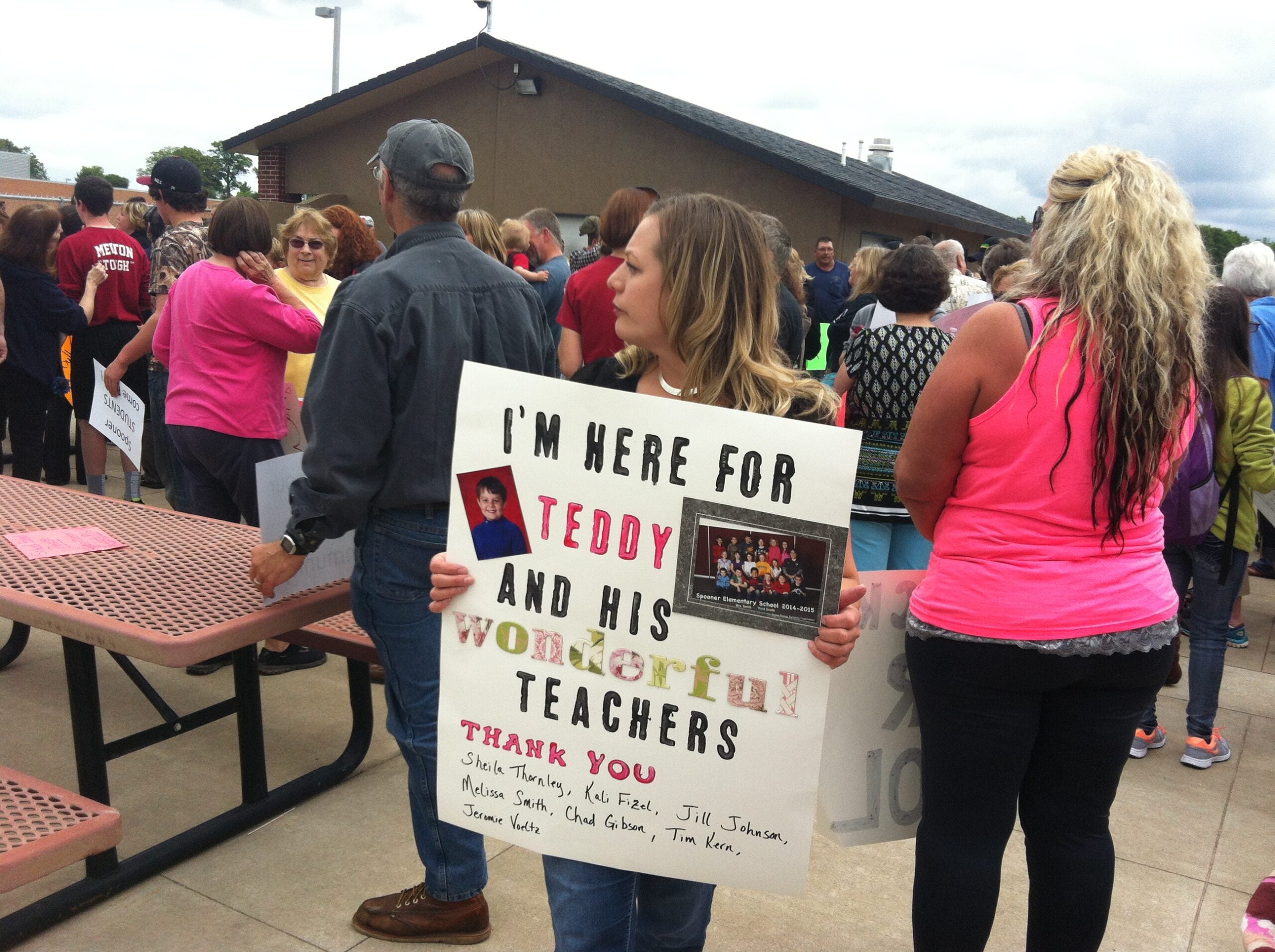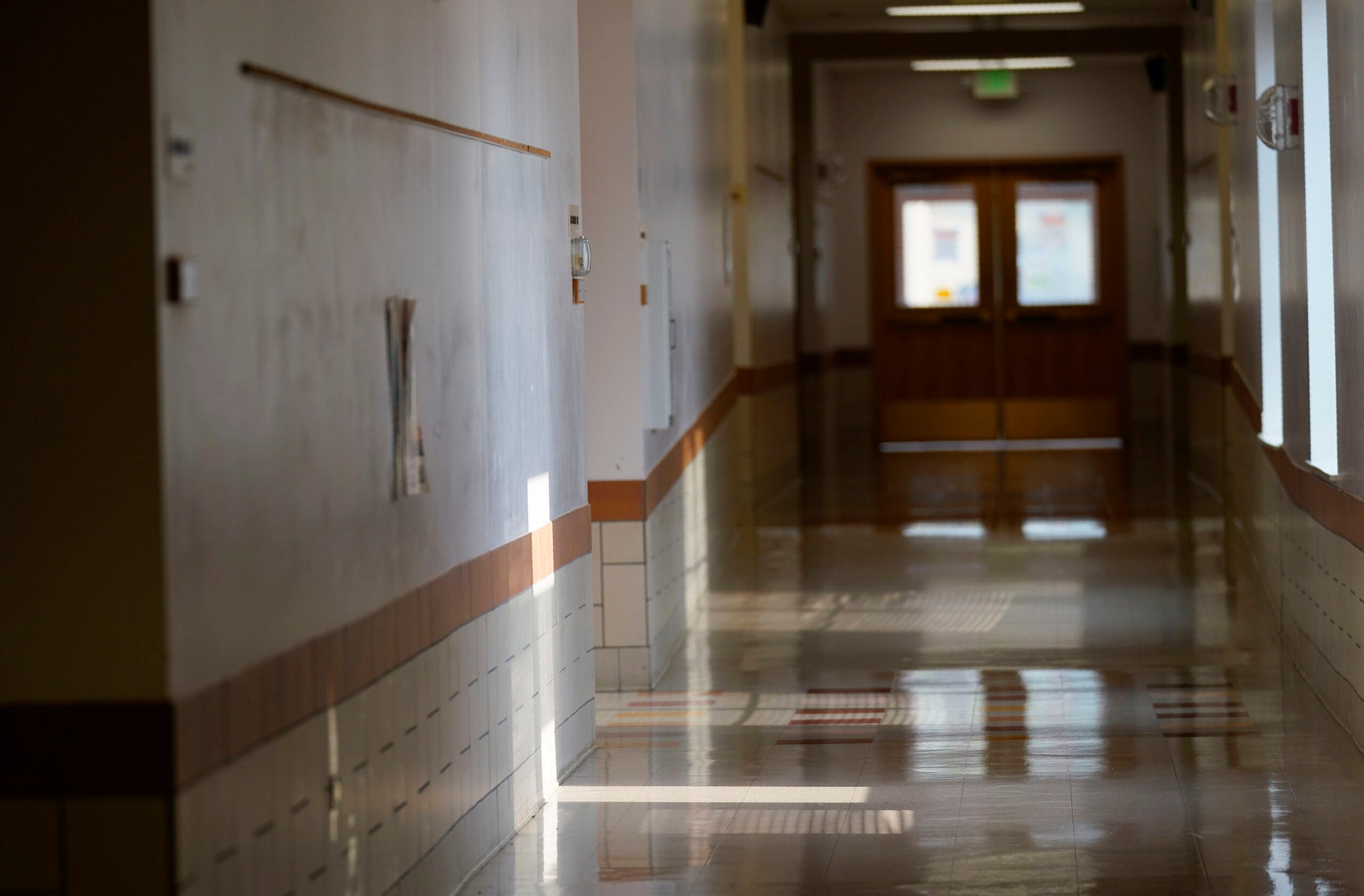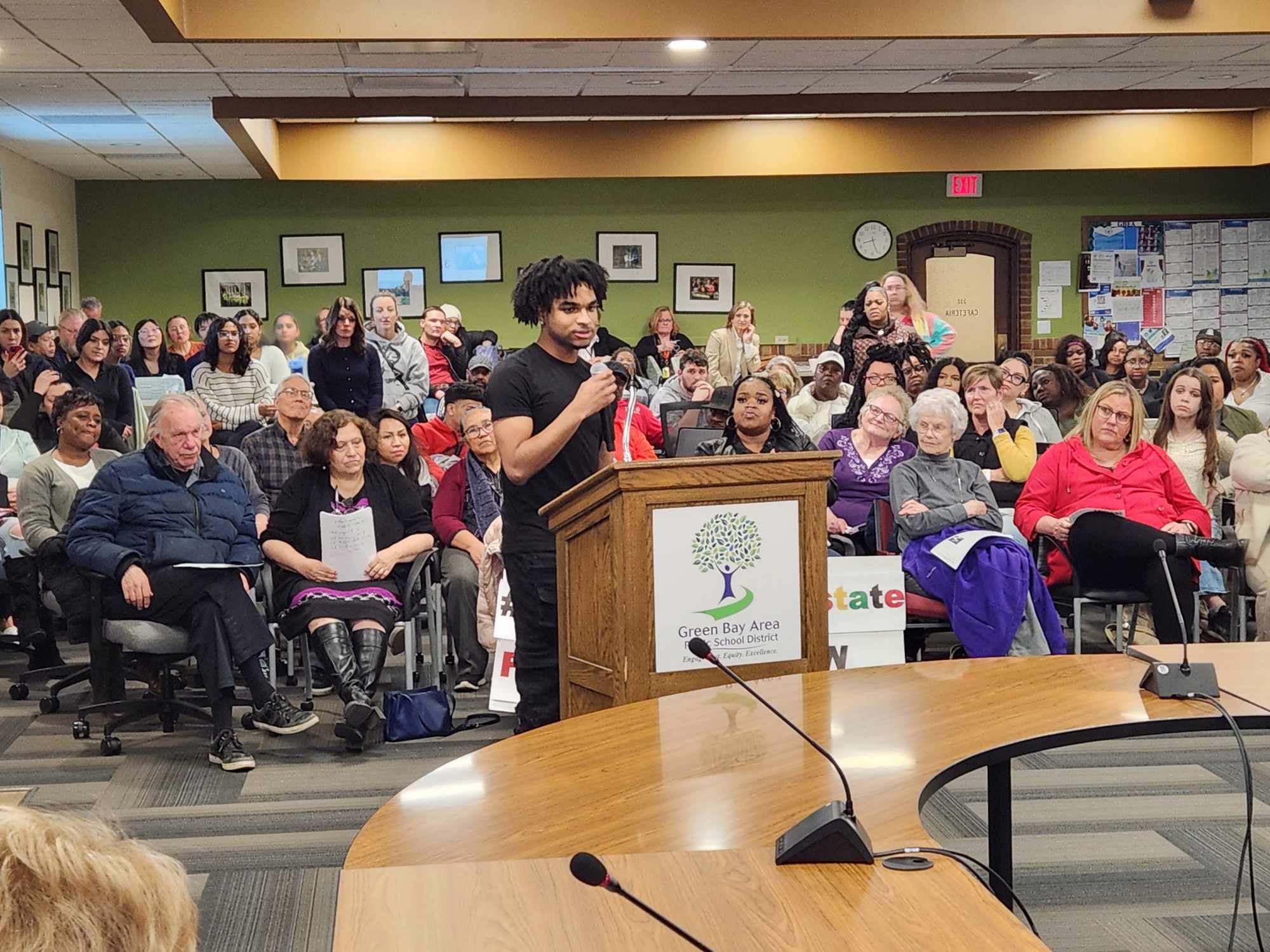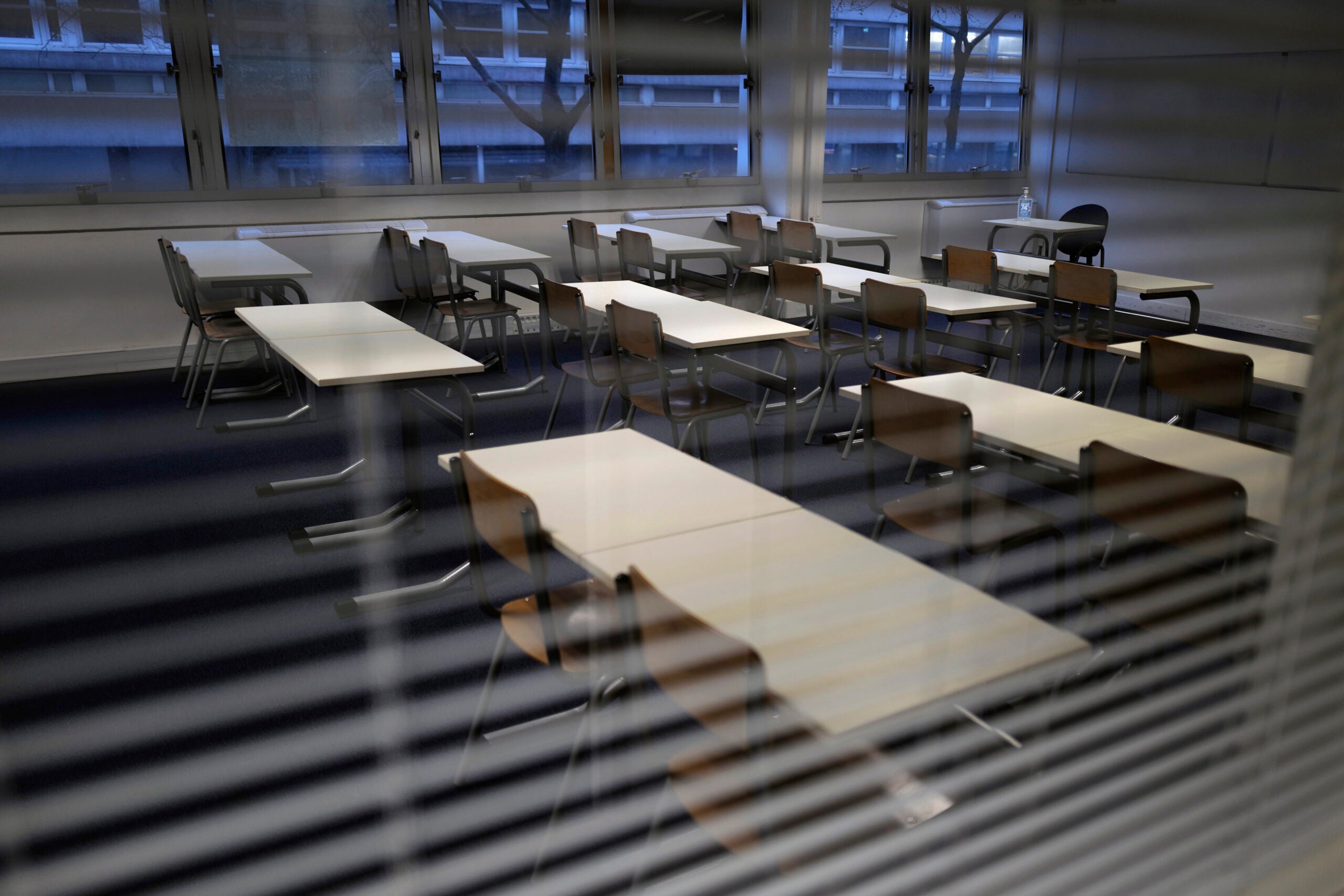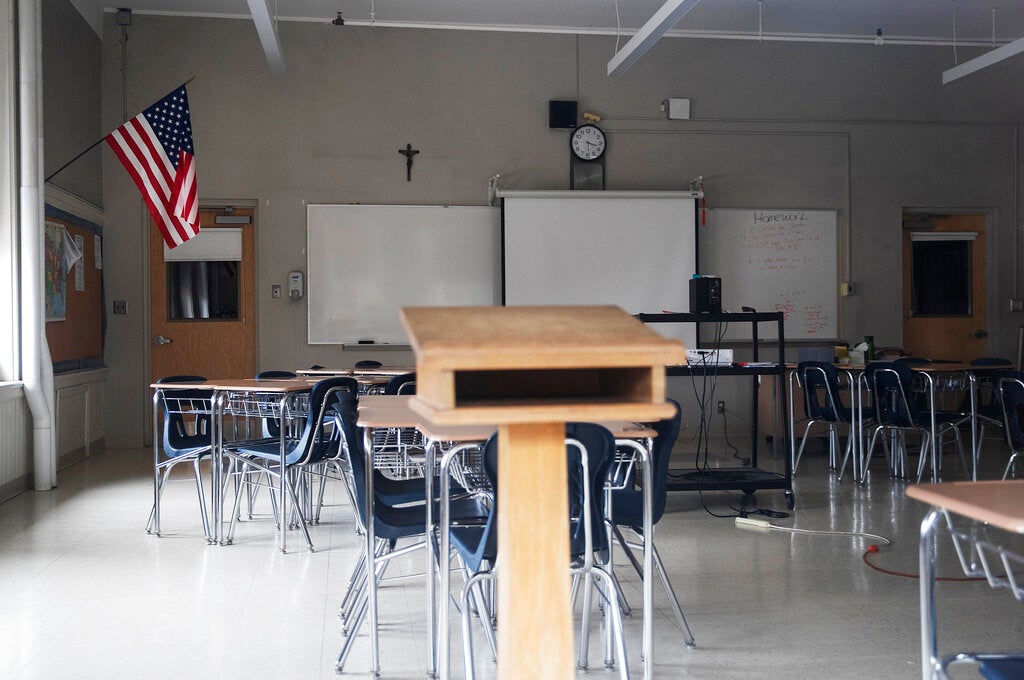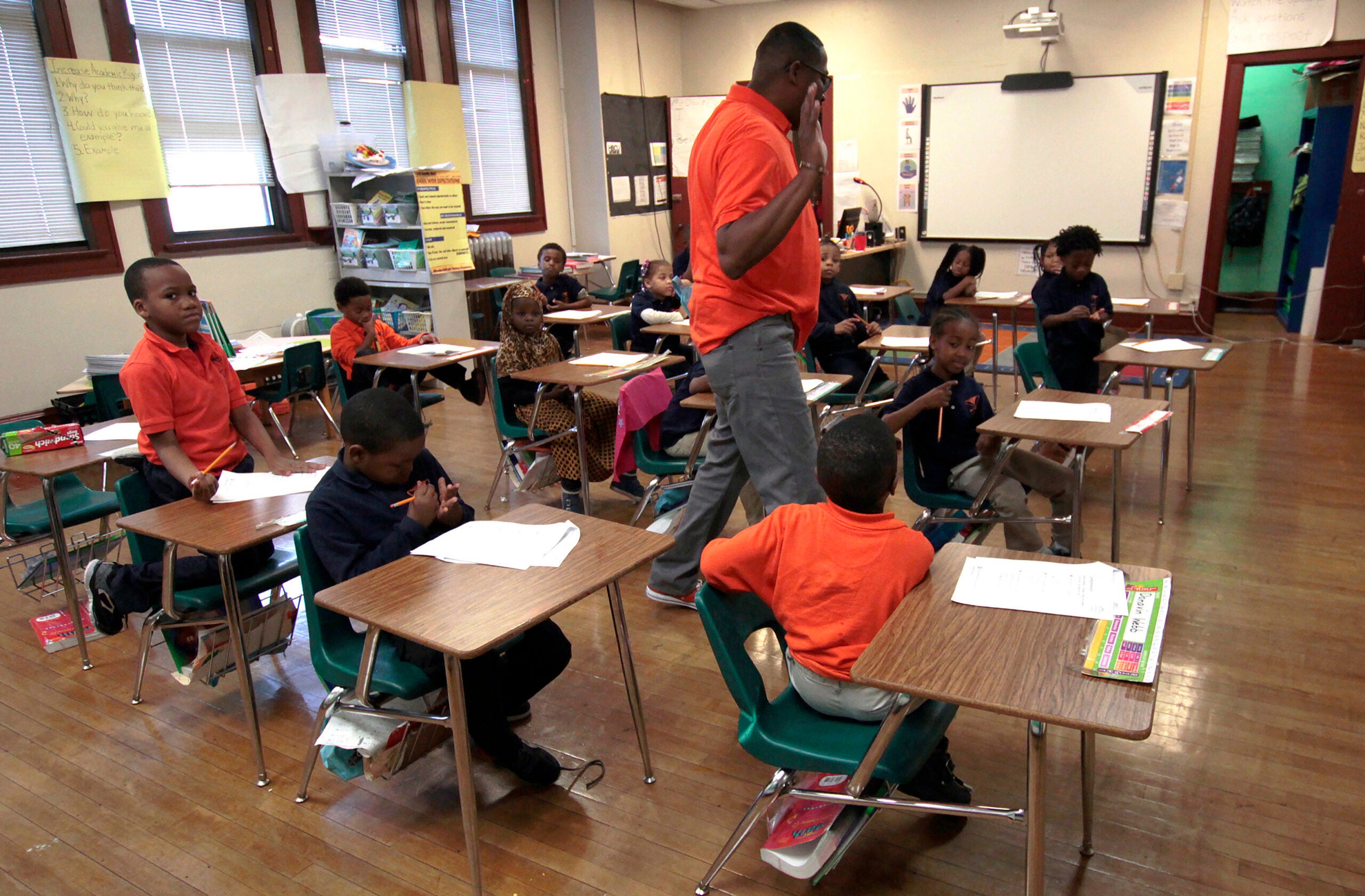Wisconsin school districts are struggling to balance their budgets, and tensions over changes at one northern Wisconsin district have reached a boiling point. The Spooner school board might seek an independent review of the district, superintendent and the board itself.
The day before the end of the school year, freshman Christopher Dobbe was collecting signatures near the football field at Spooner High School, along with other parents and students. More than 100 people had gathered to protest how they hear teachers have been treated by school administration. Many are calling for Superintendent Michelle Schwab to step down, and for an entirely new school board.
Dobbe said Schwab and the board are the reason his favorite teacher has decided to leave the district.
Stay informed on the latest news
Sign up for WPR’s email newsletter.
“I feel like I try my hardest for him. I feel like I have to accomplish more just show him what I can do, and now that he’s not going to be there, I don’t know what to think about that,” said Dobbe.
In the last year, 42 of the district’s 165 faculty and staff have retired, resigned or have not had their contracts renewed. In addition, 25 aides haven’t yet received work assignments for the fall.
Danielle VanBuskirk, a parent, said she’s concerned about who will teach her son next year.
“What kind of teachers are we going to get applying here with this dysfunction that’s going on here in our district?” she said.
VanBuskirk accuses the superintendent of intimidation.
School Board President John Hedlund said members knew they weren’t going to win many friends when they asked their top administrator to deal with the district’s roughly $900,000 deficit.
“Clearly, we have some needs to address with our budget, but intimidation is not one of those strategies that we want to be a part of it,” said Hedlund.
Hedlund said the district has been forced to dip into its fund balance each year to offset costs. The fund balance has decreased from a high of roughly $6.4 million in the 2011-2012 school year to around $5.3 million at the end of 2013-2014, according to the most recent data from the district. Hedlund said they wanted to renew a referendum several years ago to help with operating costs, but that the move wasn’t supported by voters.
Community members are concerned the changes at the school district are driving students to open-enroll out of Spooner schools. Image courtesy Spooner School District
In the last year, the district began implementing the state’s new performance-based evaluation system. In addition, the administration is changing teacher positions, has started requiring employees to contribute 12.6 percent toward their health insurance, and is considering changes to post-employment benefits.
School Board Member Robert Hoellen questioned the pace of the changes taking place at the district.
“Wouldn’t it be better to take a slightly longer-term approach?” said Hoellen. “That way you’re not forcing, imposing your will and giving the people who perceive themselves as affected or aggrieved in some way little or no chance to make alternative plans. We still end up accomplishing our mission at the same time and being respectful in the process.”
But without significant change, Schwab said the fear is that the district will either have to go to a referendum or explore consolidation in several years, scattering the district’s 1,300 students.
“When you look at the current laws related to the Affordable Care Act, the increase in health insurance premiums, the ongoing cost of operating our buildings, and then where our community is located … all of those play into the types of revenues we can get in,” she said.
Schwab said the accusations against her might stem from the fact that she’s among several administrators who are new to the district in the last year. She said there might be a lack of trust between her and staff due to that and the changes being made to address the deficit. She added the district is struggling to comply with state and federal mandates.
“The mandates are the same whether you’re in a large suburban school district or whether you’re in an affluent area. But when you’re in a small rural community, you still have to abide by all those mandates but you have less resources, so it does become strenuous,” Schwab said.
Staff member Marla Gilbertson decided to retire early from the district in February this year after working for more than two decades as a secretary in the elementary school.
“We couldn’t get a straight answer if I would lose my benefits or my sick-leave payout,” said Gilbertson. “I was afraid I would lose those, so I went ahead because I couldn’t ever get a straight answer.”
Former teacher Andrew Melton said the unrest at Spooner schools goes beyond difficulties addressing the district’s budget. He said he and other staff felt bullied by the administration. Melton said he was reprimanded twice for publicly criticizing the district and placed on administrative leave.
“I tried to speak to the school board and complain to them and they just said there was no grounds for my complaints,” said Melton.
School Board President Hedlund said they couldn’t verify Melton’s claims without more evidence or witnesses. The administration declined to comment on personnel matters.
Hedlund said the board will consider having the Wisconsin Association of School Boards or another group review what’s going on in the district.
“Because we really are interested in the truth,” said Hedlund. “We’re concerned about our teachers and our staff.”
In addition, some community members are expressing concern that the changes have caused 64 students to open-enroll out of the district.
State Superintendent Tony Evers said he’s not surprised smaller districts would see more tensions as they balance their budgets.
“It’s a difficult situation when you’re dealing with a lack of resources, and people have high expectations for what’s going to happen in their schools, and it leads to conflict,” said Evers.
Since Act 10 became law, Wisconsin Education Association Council spokeswoman Christina Brey said they’ve seen more turnover in districts where teachers feel they have less say on the job.
“It’s really hard to work in an environment where you’re told what to do and not ask how that impacts the children you’re face-to-face with,” said Brey.
But Nick Novak, a spokesperson for the conservative think tank the MacIver Institute, said Act 10 has helped districts like Spooner deal with financial challenges.
“That has been able to help balance the budget of local school districts,” said Novak. “It’s helped put money back into the classroom. In many districts, it’s allowed them to increase teacher base pay — to increase programming.”
Retired Spooner teacher Carlo Kumpula said it’s not just about money. “It’s about respect,” he said.
Several other current and recently retired teachers declined to comment. Some cited concerns over retaining benefits, and others referred comments to administration.
The Spooner school board will consider whether or not to have an independent review done at a meeting this week.
Wisconsin Public Radio, © Copyright 2024, Board of Regents of the University of Wisconsin System and Wisconsin Educational Communications Board.

